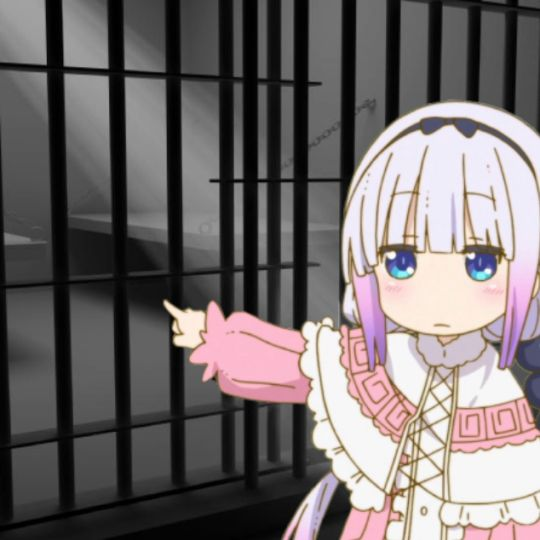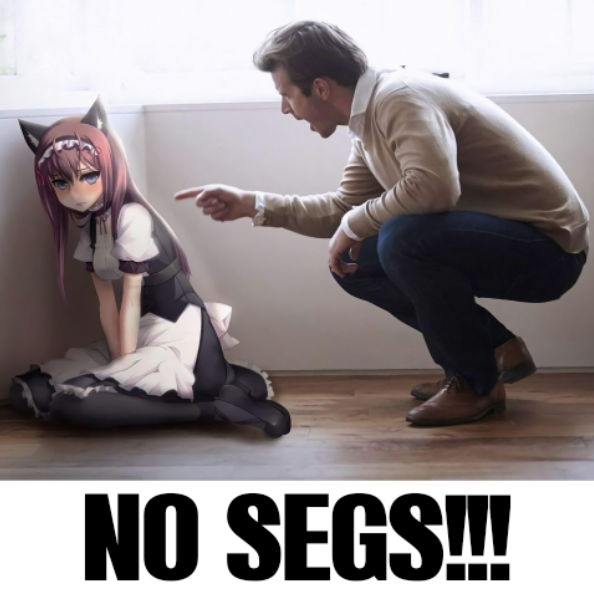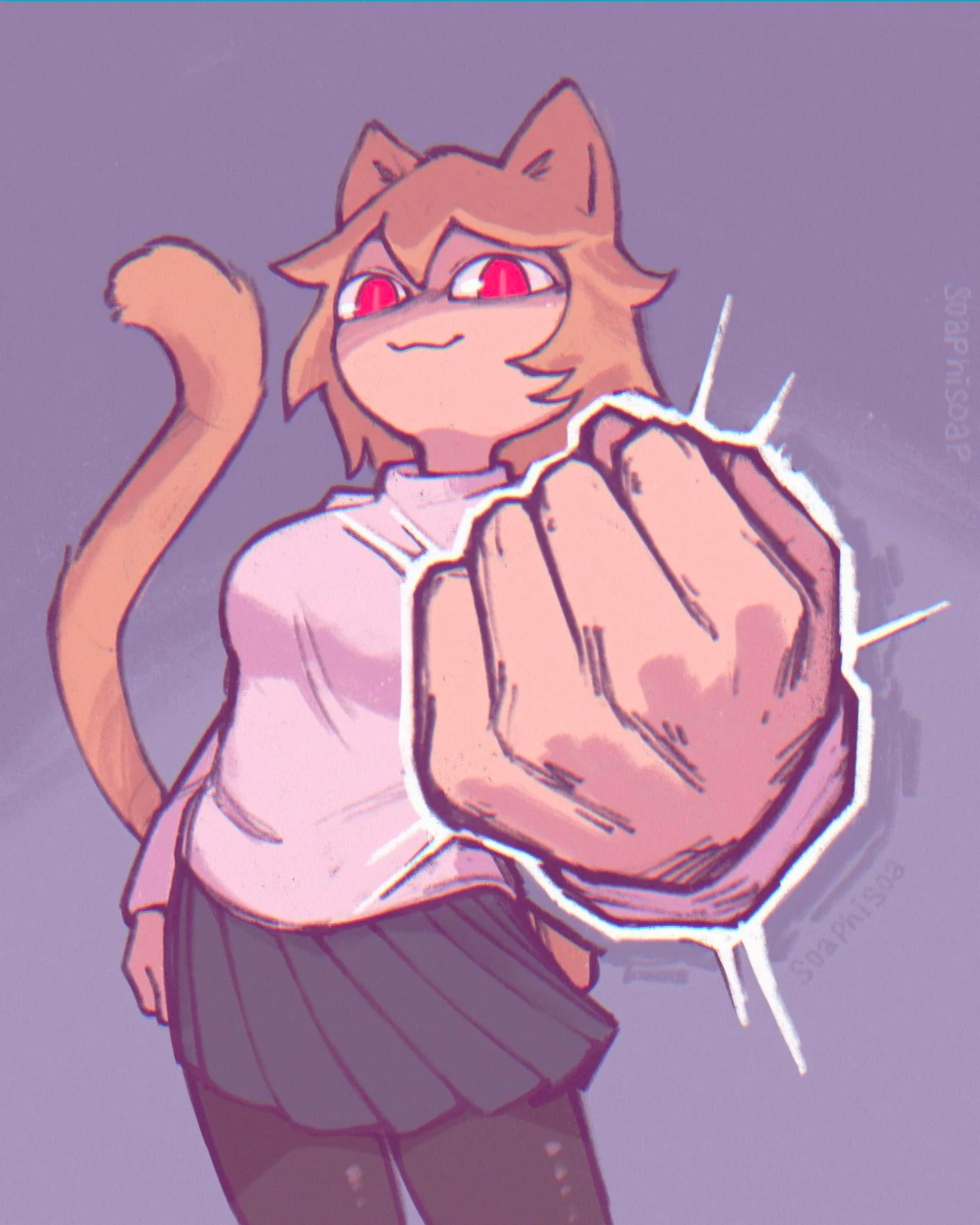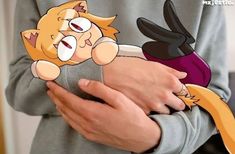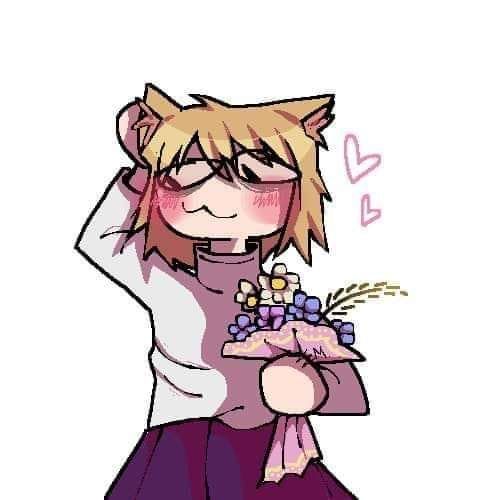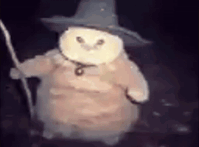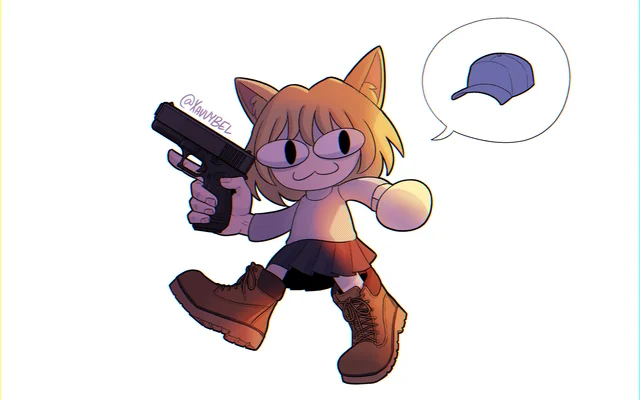TRPG Player Aims For The Strongest Build In Another World ~Mr. Henderson Preach the Gospel~ - Vol 2 Chapter 9
- Home
- All
- TRPG Player Aims For The Strongest Build In Another World ~Mr. Henderson Preach the Gospel~
- Vol 2 Chapter 9 - Childhood – Spring at Age Twelve ・Part 2
Vol 2 Chapter 9 – Childhood – Spring at Age Twelve ・Part 2
I saw children running toward the fireworks blooming in the sky with a lively “pon pon” sound.
It was a nostalgic sight. Five years ago, I too was among them.
“Ah, the wizard has come again this year, hasn’t she?”
“It appears so.”
After that, we appeased the pouting princess with popsicle ice cream—though it seems half our allowance was blown away—and continued our stroll.
Since we were already bored and just wandering around, with nothing particularly captivating catching our interest, we were in a mood to at best tease the minstrel on our way home.
“Onii-sama, onii-sama.”
“Hmm? What’s the matter, Eliza?”
Since she isn’t very skilled at eating ice pops, I can’t really complain about her sticky little hands touching my head. That’s just how kids are. There’s no use expecting fine manners from a first- or second-grader anyway—it’s something I can simply fix by washing my hair later.
“I want to see it up close.”
“Oh, I see. Then…”
“I don’t mind, do I?”
Margit, not so much out of enthusiasm as to placate Eliza, accompanied us as I moved closer to where the fireworks were being set off.
The one setting off the fireworks was not the old man from whom I had received the ring, but a young female wizard. With her glossy silver hair arranged in an opulent chignon and long ears peeking out, she was unmistakably a long‑lived Metushelah.
She was the very picture of a Tolkien elf.
Long ears, amazing magical power, a lifespan that lasts until they are killed, and a forever‑young appearance—these are all qualities of a superior version of the human species, the high‑end of humanity. The fact that two of the Elector houses boast renowned long‑lived families attests to their high prestige.
However, the biggest difference from Tolkien’s elves is that they are not LOHAS-loving naturalists but children of civilization.
They build towering structures to banish the darkness of ignorance, immerse themselves in a civilization born from a thirst for knowledge, and are hardcore city boys and girls who relish lavish banquets. Favoring majestic stone constructions over humble wooden ones, these long‑lived beings are, at their core, new‑fangled connoisseurs intoxicated by advanced civilization.
So that they never tire of their endless lives, they are all, without exception, extravagant spenders utterly fixated on entertainment, study, and indulgence.
Therefore, compared to humans, they are few in number—since, lacking mortality, reproduction is merely a form of amusement for them—and it is rare to see a long‑lived being in the countryside. I, too, had only read about them in the chapel’s books, and this was the first time I had ever seen one with my own eyes.
“Wow, such long ears!”
“Your hair is beautiful!”
“Your eyes… they’re so different! What’s going on!? Hey, what’s going on!?”
And with such a rare species at the stall, it was impossible not to attract the children’s attention.
It seemed impossible for her not to be swarmed by kids—even without any snappy retorts. Dressed in an exquisite silk robe, she was immediately surrounded and bombarded with questions like raindrops; her finely sculpted beauty became distorted, and in her panic she fumbled with her askew glasses without a moment’s pause.
“Hey, I said stop—don’t touch it, you hillbilly bumpkins! This robe is expensive, you know!?”
Then, the way she refused to let her clearly high‑quality crimson robe be touched by mud‑ and candy‑stained hands was, well… completely at odds with the typical image of an elf—the mysterious, hermit‑like figure who spouts long‑winded, vague advice and handles a bow or something.
She was just too worldly, I guess…
Even though she looked every bit the part—with her red robe, silver hair, porcelain skin, and odd eyes in deep blue and pale green—and when she struck that snarky, rich‑kid pose straight out of a gag manga, it just came off as rather offbeat.
“I’ve never seen a long‑lived one before, but… so that’s what they’re like…”
“Absolutely beautiful!”
Margit’s voice, laced with palpable disappointment, contrasted with Eliza’s innocent praise of her beauty. I agreed with Margit, yet I couldn’t deny that even her fierce scolding—baring her teeth at the relentless onslaught of rural kids—had its own strange charm. Her porcelain skin, flushed with vermilion, and her face, as finely carved as a goddess statue I had painstakingly made, crumpled in anger, held an indescribable, alternative beauty.
Perhaps with looks like that, even if she slipped on a banana peel, she’d still manage to look stunning.
I watched the long‑lived one struggle with the children for a while, but kids’ interests are fickle. When a minstrel nearby started parading about, announcing “Now, the story begins!” for his advertisement, their interest evaporated in an instant and they clustered behind his opulently dressed figure.
What was left behind was the image of a city girl, with a slightly soiled robe and disheveled silver hair.
“Ugh… why is this happening to me…”
With tears in her eyes, she raised her right hand to her mouth and gently exhaled. And wouldn’t you know it—her wildly disheveled hair immediately fell into place, and her dirty clothes became pristine. With just a breath infused with magical power, she executed her spell… what a convenient magic that is. I can only imagine how envious my mother would be if she heard about this.
“Amazing, amazing!!”
Upon seeing even the makeover of the Mouse Empire’s princess, Eliza’s excitement soared. In contrast, perhaps having just been trampled by kids, the long‑lived one’s shoulder jerked and her neck swiveled toward us in a movement reminiscent of a rusty hinge.
Just as she wore a bitter expression—as if to say, “What’s with these brats?”—her face suddenly froze. Following her gaze, it was clear that her attention was fixed not on me or Margit, but on Eliza, who was being given a piggyback ride.
What could it be? Admittedly, my little sister is as cute as an angel, but to have caught the eye of a long‑lived one… it was both flattering and vexing.
“Hey, fairy kind?!”
No sooner had she shouted that than the long‑lived one, eyes wide open, leapt toward us. Her agility was so sharp that without the expensive trait “Lightning Reflex” I’d acquired in a moment of material weakness, she wouldn’t have been able to react in time.
This trait falls under the “Body” category of physical traits, unlocked by constantly dealing with fast humans like Margit and Mr. Lambert, and it greatly boosts one’s reflexes.
If that were all, one might simply raise Agility, right? But this is of a slightly different flavor. With a lightning‑like reflex, it not only enables one to execute a full‑power setup but also helps follow up swiftly to completely quash any advantage. At the very least, if this were listed in the Lulub, a nerf errata would be inevitable in the next edition.
Yet, the fact that even I—who have that trait and have also secured high Agility and Excellence—was slower to react indicates that this wizard is no ordinary wizard, isn’t she?
Breaking out in a cold sweat, I stepped back half a step with only my left foot, just enough to narrowly evade the charging long‑lived one. Surely someone should commend me for managing that while effectively carrying the weight of two children.
The long‑lived one, having been dodged, landed right in front of me without falling; her hand—which had been reaching to grab my shoulder—drifted aimlessly. Then, after firmly grasping my bewildered shoulder once more, she fixed her gaze on me and said:
“Where did you catch this?!”
“Don’t even get smart—who do you think you are, grabbing someone’s little sister, you long‑eared punk!”
Then, before I knew it, the filthiest words I’d ever uttered—delivered in a tone that hardly sounded like my own—began to slither out. It was an outrageously crude piece of country slang I’d known but never used, spewing insults as if my cute little sister were some kind of insect or beast.
Had I not held back just a bit more, I might have slapped her jaw with my palm right then and there. Suppressing the urge to “kill that bitch” with sheer reason, I pushed the insolent long‑lived one off my shoulder and shook her off.
“Sister…? Do humans have a culture of adopting other races? Then is that spider‑person also your sister?”
Once again, the insolent long‑lived one spouted impertinence, and Margit furrowed her brows in discomfort. What on earth is this wizard talking about? Humans don’t have such a culture—and even from the start…
“I don’t know what you’re on about, but my kid is human.”
Eliza is human. She was born the moment I became aware—and I even witnessed her birth. My little sister, who inherited our mother’s blonde hair and our father’s eye color, is human, not of another race. After all, even if many species can interbreed with humans, mixed‑blood offspring are virtually never born. How could any other race be produced from two pure humans?
“Haven’t you noticed?”
Yet even after hearing my words, the wizard tilted her head as if she had seen something truly odd. Adjusting her glasses, she stared intently at me.
“You have that much magical power? And yet your eyes aren’t open? That’s absurd.”
Leaning in close to scrutinize me, she resembled a researcher examining a specimen wedged between slides. At the very least, from every gesture and word, it was clear she had no personal interest in me whatsoever.
I see—so this is why long‑lived beings are so despised. In books, their reputation is described in layers of euphemism as “not particularly commendable,” and I thought it was simply the arrogance that comes with longevity… but indeed, no creature would feel good being scrutinized like this.
“Do you really not understand?”
“First of all, I… hmm, I cannot possibly understand what you’re talking about.”
Then she clammed up before she could spew any further insults, instead flooding her words with courtly language. Admittedly, I’d since, through inertia, raised my magic‑related stats to “Good,” but I hadn’t acquired any skills to truly awaken as a wizard.
That, in a way, is my shortcoming. Upon reaching this stage, I basically do not automatically acquire skills that most would; rather, when a popup appears saying “You can learn this,” I choose—with a YES or NO—whether to acquire it.
And that’s precisely why, even though my magical power has risen above average and I would normally have awakened to some unique ability, I have managed to avoid learning magic.
Still, one person’s flaw can be another’s advantage. While ordinary folk inadvertently accumulate proficiency in trivial skills or traits, I save myself that needless expenditure. By not having my proficiency drained into things like the “Villainy” category’s “Sly Schemes” or “Trivial Theft,” I’m able to boost my stats far more efficiently than others.
However, this time it may have caused that “flag” to malfunction.
“That’s odd… well, if you consider that you’ve found two rare items, it’s great.”
The long‑lived one—whose appearance was as profound and thoughtful as that of an elf yet whose attitude was strangely light—scratched her head vigorously and laughed.
“Then, I’ll tell you—the truth.”
【Tips】Long‑lived Metushelah
Long‑lived Metushelah are the high‑end of the human species—beings without a natural lifespan who forever remain in their prime. Possessing exceptional magical power, a superb physique, and unyielding wisdom, the only forces capable of killing them are overwhelming violence and the mental erosion wrought by time’s relentless torrent. For that very reason, a special penalty exists solely for the long‑lived: the extreme punishment of eternal confinement in the water prison of ignorance.
The long‑lived wizard casually procured some tea and seated us near her cart. I did consider giving her a good slap, but facing someone so formidable that even my reaction lagged for an instant, I figured she wouldn’t simply vanish on me—and so I played along.
However, since Margit wasn’t interested, she was sent home. Being clever, I’m sure she would have brought along her parents or some village bigwig. That way, they could do something about this insolent wizard.
“Well then, let me tell you something: your little sister isn’t human.”
“Then what is she?”
I thought, “Introduce yourself before launching into this,” but since I’m not keen on revealing my name, I let it pass.
Yet, although my previous encounters with beings of other races had generally been quite pleasant, I never imagined I’d be treated so dismissively by the very paragons of fantasy. If the entire race behaves like this, I doubt we could ever get along as the books claim.
“A half‑fairy—a changeling replacement. Anyone who looks will instantly tell. Especially for a wizard like myself.”
“Huh!?”
I considered myself lucky not to have spilled the tea I’d been given.
Just now, what did she say? A replacement? My precious Eliza?
A “changeling” is, according to legends preserved even in old English lore, a kind of divine abduction in which fairies—driven by envy of humans, a desire for a human child, or a mischievous intent—kidnap a child and leave one of their own in its place.
Such tales often bring nothing but tragedy to both child and parent, and it’s presumed that many served merely as an explanation for children born with disabilities—but in this world, the story takes on a different flavor.
That’s because fairies truly exist. Yes—the coin my brother and I once searched for as youngsters was not just idle chatter from the old man next door.
Fairies are beings that, in essence, lack a physical body; they are entities entirely separate from humans, magical creatures, or subhumans. They are even sometimes interpreted as phenomena possessing a self, and are said to be invisible to ordinary people.
According to the books I’ve read, only children—whose sense of self is not yet fully developed and whose boundaries with “others” remain blurred—wizards, and a few select races can see them.
“Fairies, you see, sometimes are reborn by inhabiting the belly of a creature that has flesh.”
But that wasn’t written in any book.
“They long for a happy family and children—they yearn to be born into someone’s home. And so, when a fairy’s soul, burning with a desire for a physical existence, is reborn into this world, a changeling occurs… I heard this straight from a fairy, so it’s the truth.”
I couldn’t fathom what she was saying. This child—Eliza, whom I’ve watched for seven years—is not human?
“Yet it seems they really struggle; a newly born changeling often speaks late, is oddly frail, and plagued with various issues—so much so that death is not uncommon.”
I had plenty of reason to suspect as much; it was the very reason Eliza clung to me. I recall her catching cold after cold, each time requiring medicine and the care of the entire family. And even now, for her age, she remains remarkably delicate.
“And fairies absolutely adore blonde hair and blue eyes… You remember, don’t you?”
Ah, my mother, Hannah, is blonde and blue‑eyed. And so am I.
“Then that child is a half‑fairy. I believe she’ll soon awaken to her magical power, you know? Once she enters that sensitive phase, her unique fairy abilities should manifest in tandem with her rising emotions.”
I could think of countless reasons. The fact that she bothered to stop us and talk means she must be certain of her claims. Otherwise, she’d know that once a child is taken, an adult eventually appears—and she wouldn’t act so recklessly.
But. Even if that’s so…
“So, what of it?”
Family isn’t formed merely by blood relations. It is forged through blood…………
【Tips】Half‑Fairy: A half‑fairy is a fairy born with a human body. A fairy’s soul, which longs for a physical form, may transform into a human or entrust its differentiated self to become one. In some cultures, they are persecuted or prized as a valuable “resource” because of their high magical power, but in the Empire…















